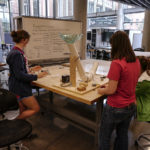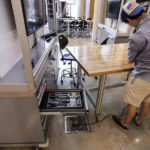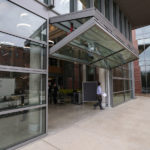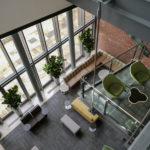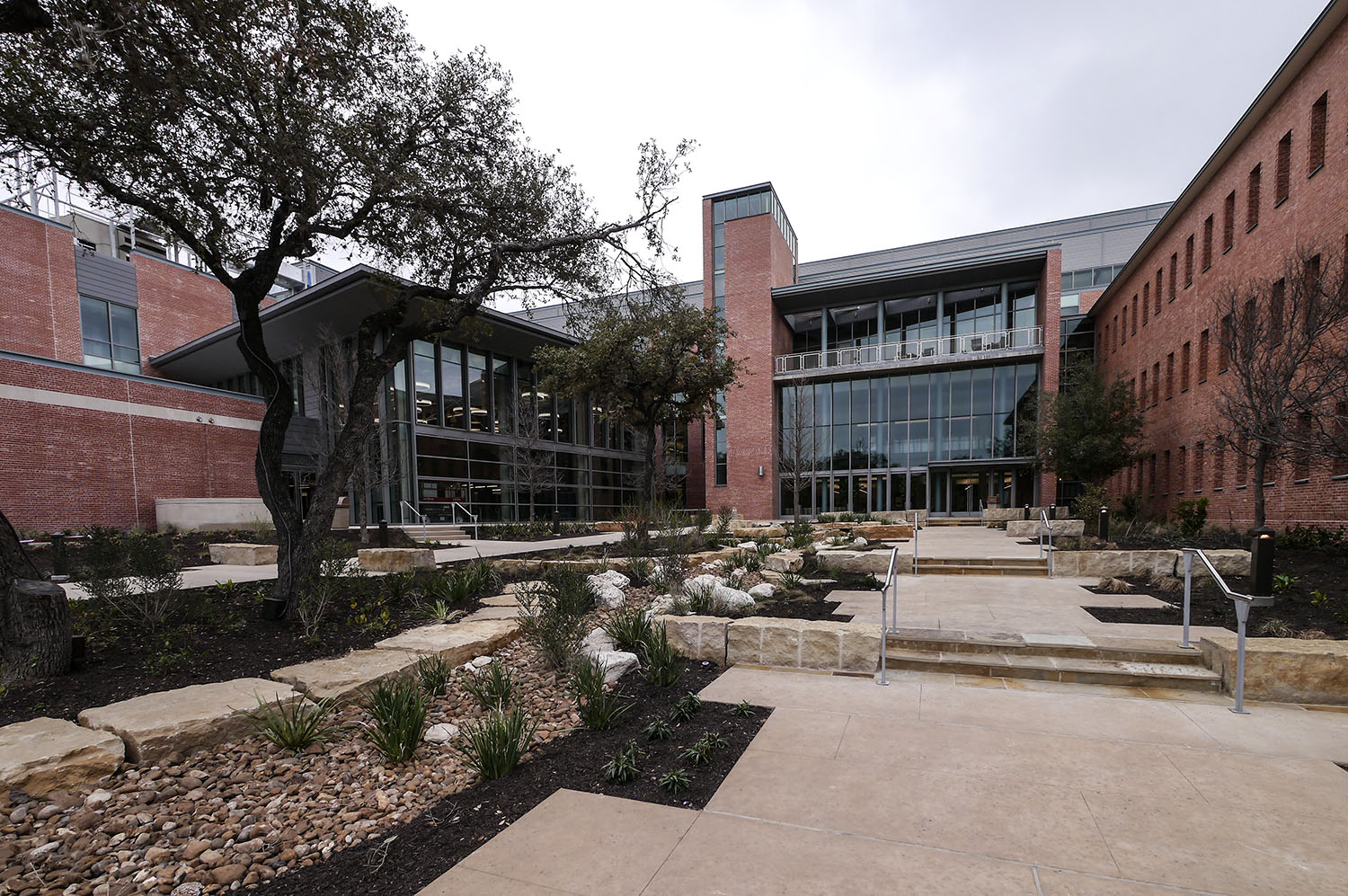
Project-based learning is at the forefront of teaching in the STEM (Science Technology Engineering and Math) disciplines in both K-12 and Higher Education. A new generation of innovative science buildings are being designed that support this new active learning pedagogy.
This past week I attended a conference in San Antonio, Texas on creating STEM buildings for Higher Education institutions. We heard from faculty, architects and educational thinkers about the evolution of science education and laboratory design and toured the new Center for the Sciences and Innovation at Trinity University. Their new STEM building embodied many of the concepts we explored together during interactive conference sessions.
What are the hallmarks of a 21st century science teaching facility? Foremost they are about active and project-based learning. These are environments where students become agents of their own learning and work both collaboratively and individually to solve real world problems. The buildings are transparent and accommodating, making science visible and blurring the boundaries between the laboratory and the classroom. With plenty of “soft spaces” they become a magnet for students and build a supportive community of science learners.
At the Center for The Sciences and Innovation at Trinity University we saw labs with floor to ceiling glass, making the activity of the labs less mysterious and immensely inviting. On every floor, formal and informal study spaces were full of science (and non-science) students who inhabit the building almost around the clock. Write up spaces, separate but housed within the labs, become the places where, it was pointed out, all the data from the labs is transformed into learning. These are also spaces where students can study, collaborate and meet with faculty.
While the entire building is a beacon, reaching out to the greater campus community, the highlight of the facility is the Innovation Studio, a multi-modal maker space surrounded by shops, computer design labs and meeting spaces. The Innovation Studio, which is part of the Engineering Department, reaches out to all the sciences and the greater campus as a place for students to make their projects real. This facility will have strong links to the Business and Entrepreneurship programs within the University.

